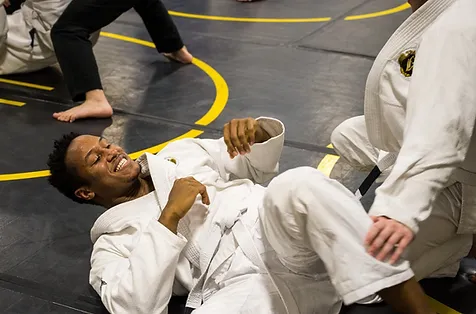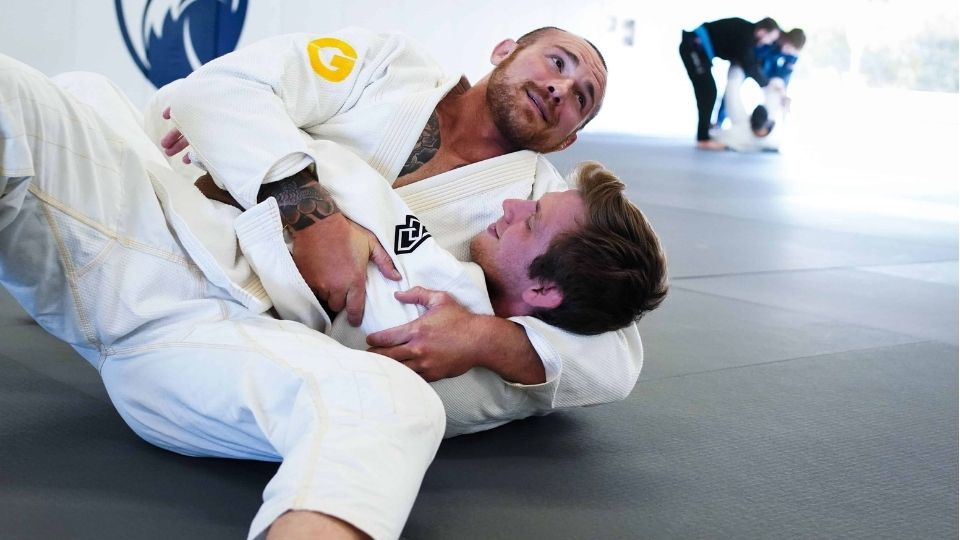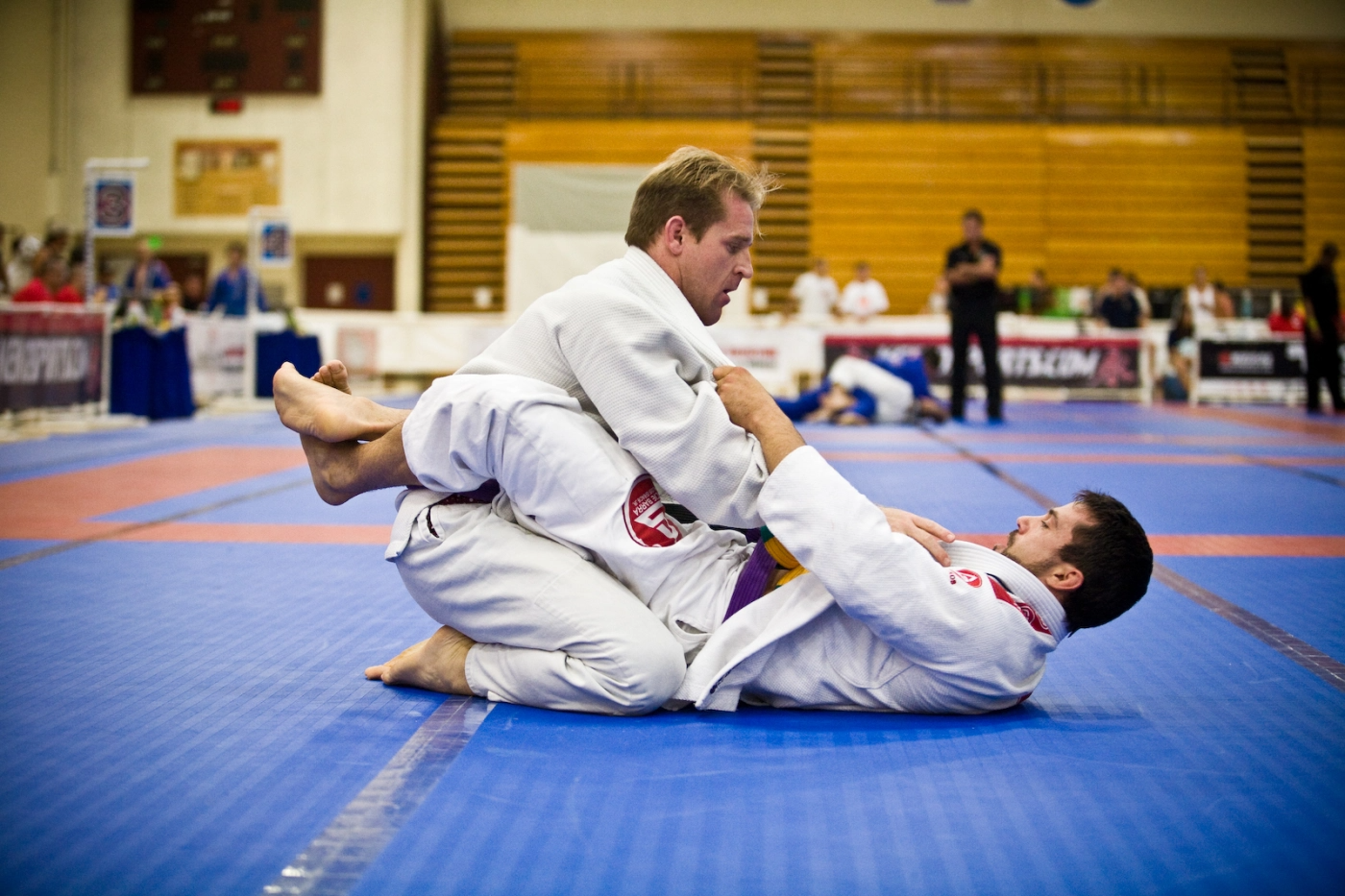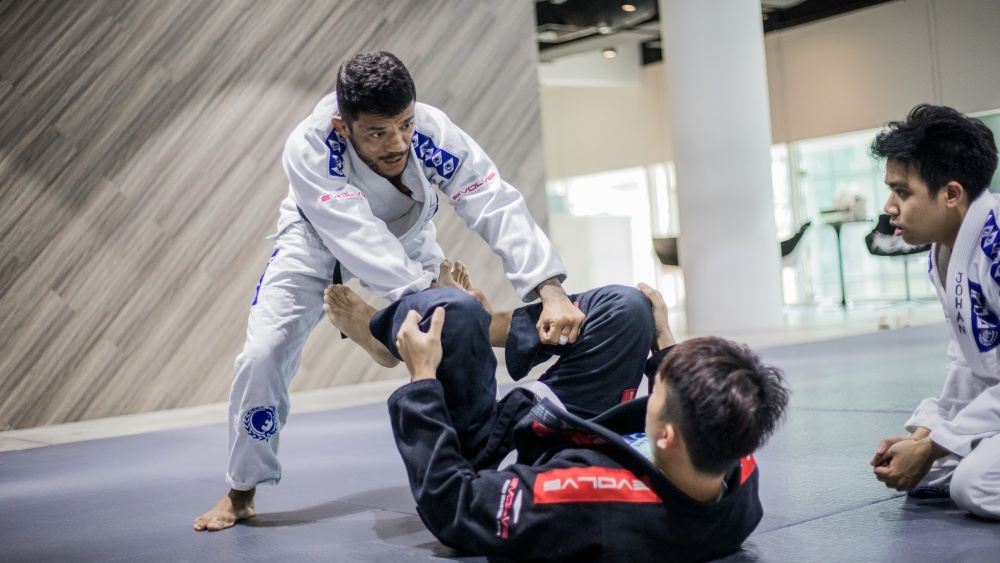Common Mistakes Beginners Make in BJJ

I've been there. You've been there. We've all been that wide-eyed white belt, stepping onto the mats for the first time, ready to become the next BJJ superstar. But then reality hits harder than a heavyweight's hip throw. You gas out in minutes, get tangled up like a pretzel, and tap more times than a Broadway dancer.
Sound familiar? Don't worry, we've all been there. But what if I told you there's one mistake that's holding you back more than any other? A mistake that, once fixed, can skyrocket your Jiu Jitsu progress?
Embracing the Experience in Jiu Jitsu
Let's get straight to it: the biggest mistake you can make is overlooking the advice of more experienced practitioners.
Trust me - I've been there, I clearly remember a few months into my journey as a white belt, I thought I knew it all. I'd watch a few YouTube videos, try out a move on my training partner, and then wonder why it didn't work. It wasn't until I started really paying attention to the wisdom of some of the upper belts at my academy that my Jiu Jitsu game really started to improve.
The Role of Drilling and Repetition
One of the most valuable lessons I learned from the higher belts in my gym was the importance of drilling and repetition. It's not enough to just learn a technique once and expect to pull it off in live rolling. You need to drill it over and over again until it becomes muscle memory.
Think of it like building a house. You can't just lay down the foundation and call it a day. You need to keep adding bricks, one by one, until you have a solid structure. The same goes for your BJJ journey. Each drill, each repetition, is another brick in your foundation.
Sure, you'll make mistakes along the way. You'll forget a step or get caught in a submission. But that's all part of the process.
Optimizing Your Training Schedule for Maximum Progress

One of the biggest challenges for new BJJ practitioners is over training. The more classes you take, the more live sparing you do, the better you'll get right? Well, yes and no.
When I first started training, I was at the academy six days a week, sometimes even twice a day. I thought I was being hardcore, but in reality, I was just burning myself out.
It wasn't until I started incorporating regular rest days into my training schedule that I started seeing real progress. Rest days are crucial for both physical and mental recovery, they give your body a chance to repair damaged tissues, replenish energy stores, and adapt to the demands of training. Without them, you're at a much higher risk of injury and burnout.
But rest days aren't just about lying on the couch and doing nothing. Active recovery, like light stretching, yoga, or even walking the dogs, can help promote blood flow and reduce muscle soreness.
Common Mistakes BJJ Beginners Make and How to Avoid Them
Here are two of the biggest mistakes I see beginners make and how to avoid them.
Focusing Too Much on Strength
One of the most common mistakes BJJ beginners make is relying too heavily on their physical attributes, like strength or flexibility, to get through techniques. While these attributes can certainly be helpful, they're not a substitute for proper technique.
I've seen plenty of strong, athletic white belts muscle their way through submissions or use their flexibility to escape bad positions. But here's the thing: that only works up to a certain point. As you progress in your training and start going up against more skilled opponents, that brute strength won't be enough.
The key is to focus on developing proper technique from the very beginning.
Neglecting the Guard Game

Another common mistake BJJ beginners make is neglecting their guard game in favor of always trying to pass and get to a dominant position, this is especially hard for those that have a wrestling background.
Think about it this way: if you're always focused on passing guard, what happens when you inevitably end up on your back? If you haven't developed a strong guard game, you'll be like a fish out of water, struggling to survive. Make sure you're spending just as much(or more) time developing your guard as you are your passing and top game.
Drill guard retention techniques, work on your sweeps and basic submissions from guard, and don't be afraid to experiment with different types of guards to find what works best for you.
Get Really Good at a Few Guard Passes

I know we just talked about focusing more on playing guard rather than passing - but that doesn't mean neglecting passing all together. Rather than focus on the crazy and flashy passes you see the higher belts pull off, focus on getting really good at 2-3 basic passes. Even having just a few fundamental passes that you are really good at will carry you a long way as you progress through the different belt levels.
But guard passing isn't just about bulldozing your way through, it's about using proper technique and body positioning to neutralize your opponent's defenses and create openings for the pass.
Start by mastering basic passes like the toreando, double under, and over under. Remember to keep a strong focus on maintaining good posture, keeping your weight centered, and always controlling your opponent's hips. Drill these passes over and over again until they become second nature.
Learn to Stay Calm In Bad Positions
Whether you're caught in side control, mount, or back control, staying calm and having a solid escape game can be the difference between surviving and tapping out.
But just like with guard passing, escaping bad positions isn't about using brute strength to force your way out. It's about using technique and leverage to create space and opportunities for escape.
Focus on fundamental escapes like the upa, elbow escape, and remember those hip escape or "shrimp" drills you do during warm ups? They aren't useless - hip escapes are the foundation of most escapes.
And remember - don't be afraid to tap if you get caught in a submission - it's all part of the learning process.
Staying Relaxed During Rolling Sessions
One of the biggest challenges for BJJ beginners is learning how to stay calm and relaxed during rolling sessions. It's easy to get overwhelmed by the intensity of sparring, especially when you're going up against more experienced opponents.
But guess what? Tensing up and holding your breath is only going to make things worse. When you're tense, you're more likely to gas out quickly and make mistakes. And when you're holding your breath, you're depriving your body of the oxygen it needs to perform at its best.
Next time you're taking a round off take a second to watch some of the higher belts roll. Even during a fast paced roll they probably aren't breathing that heavy afterwards. Now this is something that definitely improves naturally over time as your technique gets better, but being aware of it and actively working on staying calm during a roll will 100% improve your game.
Conclusion
Remember, BJJ is a marathon, not a sprint. Take the time to drill those basic techniques until they're as natural as breathing. Focus on proper form, not just speed or strength. And most importantly, listen to your professors and other higher belts and don't forget to leave your ego at the door.
Trust me, when you build that solid foundation, everything else will fall into place. You'll be flowing like water, adapting to any situation, and tapping out opponents left and right.





























